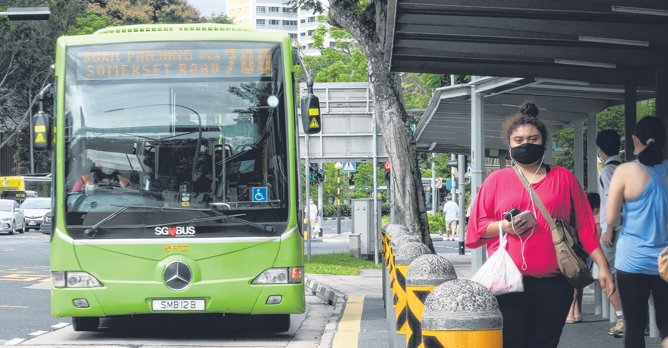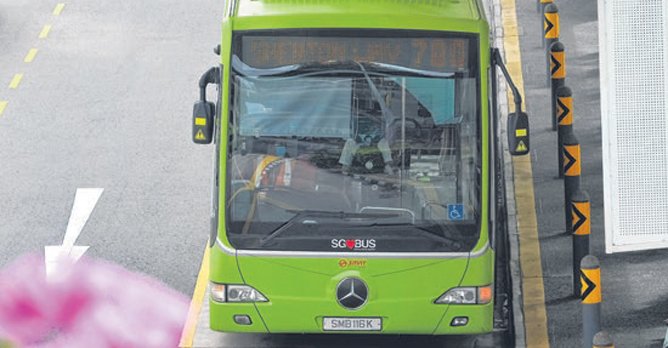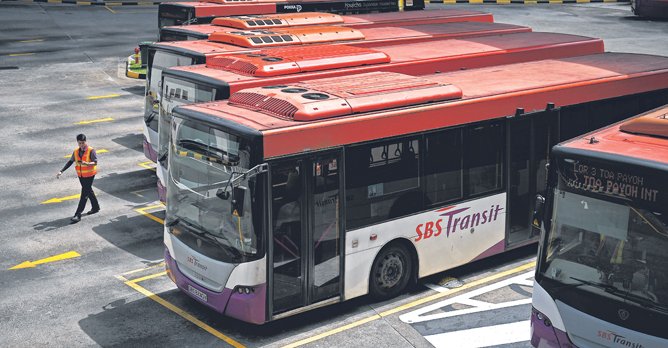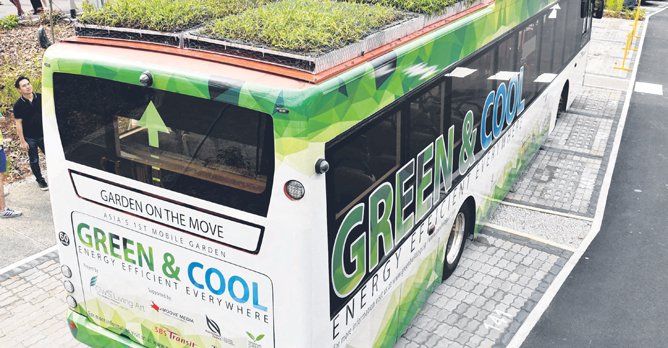Launch of Land Transport Industry digital plan for chartered bus services
26 Nov 2020|1,238 views
An efficient and reliable land transport network is an important enabler for our economy. Public transport forms the backbone of Singapore's land transport system, and the private transportation industry (e.g. chartered bus services, private-hire operators, ride-hailing operators, etc.) plays a vital role in complementing Singapore's public rail and bus services.
A key segment of the private transport industry, chartered bus services, which are typically run by SMEs, have been striving to digitalise and adopt innovative technology that can improve their business operations by addressing significant challenges they face.

The LTIDP-CBS is aligned to the Land Transport Industry Transformation Map (ITM), launched in February 2018, which strives toward a strong, diverse and vibrant land transport ecosystem. The LTIDP-CBS is also part of the 'SMEs Go Digital' programme that aims to make going digital simple for SMEs.
The chartered bus services sector currently comprises 10,600 buses owned by 3,500 different individuals and companies. Chartered bus operators are typically small fleet owners with less than five vehicles, as well as one-man operators who multi-task by taking on different duties including driving, managing operations, administration and finance concurrently.
The LTIDP-CBS will address challenges faced by this sector, such as operational difficulties due to a legacy of manual and time-consuming processes, manpower challenges brought on by an aging workforce, as well as business disruptions due to a lack of innovation. Going digital will therefore help SMEs transform their business operations, increase productivity and improve efficiency for better service standards.

These digital solutions will be pre-approved by IMDA based on various SME-friendly parameters, such as its price points. Eligible SMEs may apply for funding support from the Productivity Solutions Grant (PSG) for adopting the pre-approved digital solutions.
The digital roadmap will be progressively updated to reflect the advent of new digital tools and technologies to allow the sector to keep pace with such developments. The three stages of the digital roadmap in the LTIDP-CBS are as followed.
Stage 1, getting digital economy ready. The initial stage aims to help SMEs get ready for the digital economy with basic digital solutions that enable SMEs to kick-start their digital journey by streamlining the operations and optimise resources to improve productivity and customer satisfaction.

Stage 3, leaping ahead. The third stage identifies advanced digital technologies that SMEs can adopt to maximise their business potential.
The LTIDP-CBS also includes a Digital Roadmap on Training to ensure that the industry's workforce is adequately equipped with the necessary skills to adopt digital solutions, and ready for changes that come with digital transformation.
SMEs can also use the online self-assessment checklist to assess their digital readiness and identify opportunities to go digital based on their current business operations, level of digitalisation and business expansion plans. For more information on the LTIDP-CBS, visit this link.

Referring to the common problems faced by industry, which is largely made up of one-man-operators (OMOs) with an average age of 50-60 years, Mr. Phillp Peh, President of SSPHBOA shared that fear and set behaviours are the biggest challenges that operators face in getting their drivers to adopt technology.
He added that modules in the new system, such as route optimisation, job scheduling, digital payment and inward facing in-vehicle recording device management are therefore designed to minimise the need for drastic behavioural changes. The solutions aim to cultivate safe driving habits while automating many of the current manual processes.
Chartered bus service providers that are keen to participate in the pilot can contact SSPHBOA at [email protected] or call 6741 0788. Eligible SMEs will receive subsidies to implement the digital solutions which include hardware and software training.
An efficient and reliable land transport network is an important enabler for our economy. Public transport forms the backbone of Singapore's land transport system, and the private transportation industry (e.g. chartered bus services, private-hire operators, ride-hailing operators, etc.) plays a vital role in complementing Singapore's public rail and bus services.
A key segment of the private transport industry, chartered bus services, which are typically run by SMEs, have been striving to digitalise and adopt innovative technology that can improve their business operations by addressing significant challenges they face.

The LTIDP-CBS is aligned to the Land Transport Industry Transformation Map (ITM), launched in February 2018, which strives toward a strong, diverse and vibrant land transport ecosystem. The LTIDP-CBS is also part of the 'SMEs Go Digital' programme that aims to make going digital simple for SMEs.
The chartered bus services sector currently comprises 10,600 buses owned by 3,500 different individuals and companies. Chartered bus operators are typically small fleet owners with less than five vehicles, as well as one-man operators who multi-task by taking on different duties including driving, managing operations, administration and finance concurrently.
The LTIDP-CBS will address challenges faced by this sector, such as operational difficulties due to a legacy of manual and time-consuming processes, manpower challenges brought on by an aging workforce, as well as business disruptions due to a lack of innovation. Going digital will therefore help SMEs transform their business operations, increase productivity and improve efficiency for better service standards.

These digital solutions will be pre-approved by IMDA based on various SME-friendly parameters, such as its price points. Eligible SMEs may apply for funding support from the Productivity Solutions Grant (PSG) for adopting the pre-approved digital solutions.
The digital roadmap will be progressively updated to reflect the advent of new digital tools and technologies to allow the sector to keep pace with such developments. The three stages of the digital roadmap in the LTIDP-CBS are as followed.
Stage 1, getting digital economy ready. The initial stage aims to help SMEs get ready for the digital economy with basic digital solutions that enable SMEs to kick-start their digital journey by streamlining the operations and optimise resources to improve productivity and customer satisfaction.

Chartered bus operators can use the online self-assessment checklist to assess their digital readiness and identify opportunities to go digital
Stage 3, leaping ahead. The third stage identifies advanced digital technologies that SMEs can adopt to maximise their business potential.
The LTIDP-CBS also includes a Digital Roadmap on Training to ensure that the industry's workforce is adequately equipped with the necessary skills to adopt digital solutions, and ready for changes that come with digital transformation.
SMEs can also use the online self-assessment checklist to assess their digital readiness and identify opportunities to go digital based on their current business operations, level of digitalisation and business expansion plans. For more information on the LTIDP-CBS, visit this link.

Mr. Phillp Peh, President of SSPHBOA, shared that fear and set behaviours are the challenges in getting their drivers to adopt technology
Referring to the common problems faced by industry, which is largely made up of one-man-operators (OMOs) with an average age of 50-60 years, Mr. Phillp Peh, President of SSPHBOA shared that fear and set behaviours are the biggest challenges that operators face in getting their drivers to adopt technology.
He added that modules in the new system, such as route optimisation, job scheduling, digital payment and inward facing in-vehicle recording device management are therefore designed to minimise the need for drastic behavioural changes. The solutions aim to cultivate safe driving habits while automating many of the current manual processes.
Chartered bus service providers that are keen to participate in the pilot can contact SSPHBOA at [email protected] or call 6741 0788. Eligible SMEs will receive subsidies to implement the digital solutions which include hardware and software training.
Latest COE Prices
February 2026 | 2nd BIDDING
NEXT TENDER: 04 Mar 2026
CAT A$106,501
CAT B$105,001
CAT C$74,999
CAT E$112,890
View Full Results Thank You For Your Subscription.





















